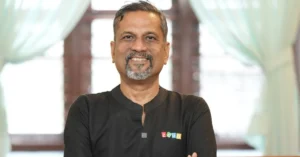When a loved one passes away, the emotional toll is often accompanied by the daunting task of managing the estate. This is where the probate process comes in – a legal procedure to settle the deceased’s affairs, ensuring assets are distributed according to their wishes or state law. Navigating this complex process can be overwhelming, making the role of a probate attorney invaluable.
What is Probate and Why is it Necessary?
Probate is the court-supervised process of authenticating a deceased person’s will (if one exists), identifying and inventorying their assets, paying debts and taxes, and distributing the remaining assets to heirs or beneficiaries. This process is necessary to ensure that the decedent’s wishes are honored and that their estate is managed and distributed legally and fairly. Probate also provides a structured method to resolve any disputes that may arise among beneficiaries or creditors.
The Main Responsibilities of a Probate Attorney
A Probate Attorney plays a crucial role in guiding the executor (the person appointed to administer the estate) or the beneficiaries through the probate process. Their responsibilities typically include:
- Validating the Will: Ensuring the will is legally valid and filed correctly with the probate court.
- Inventorying Assets: Helping to locate and appraise all the deceased’s assets, including real estate, bank accounts, and personal property.
- Managing Debts and Taxes: Advising on the payment of any outstanding debts and taxes owed by the estate.
- Distributing Assets: Assisting in the fair and legal distribution of assets to beneficiaries.
- Court Representation: Representing the estate in court, if necessary, to resolve disputes or claims against the estate.
Steps Involved in the Probate Process
The probate process involves several key steps, each of which can be facilitated by a probate attorney:
- Filing the Petition: The process begins with filing a petition with the probate court to either admit the will to probate and appoint the executor or, if there is no will, to appoint an administrator.
- Notifying Heirs and Creditors: Heirs and creditors are notified of the probate proceeding and given the opportunity to contest the will or make claims against the estate.
- Inventorying the Estate: All assets of the estate are identified, inventoried, and appraised.
- Paying Debts and Taxes: The estate’s debts and taxes are paid from the estate’s assets.
- Distributing the Remaining Assets: After all debts and taxes are paid, the remaining assets are distributed to the beneficiaries as dictated by the will or state law.
Common Challenges During Probate
Probate can present various challenges, including:
- Disputes Among Heirs: Conflicts can arise over the interpretation of the will, asset distribution, or the selection of the executor.
- Claims Against the Estate: Creditors may make claims against the estate, complicating the distribution of assets.
- Complex Assets: Estates with complex assets, such as businesses or international property, can be difficult to manage.
- Legal and Tax Issues: Navigating the legal and tax obligations of the estate can be complicated and requires specialized knowledge.
How a Probate Attorney Can Help Simplify the Process
A probate attorney can significantly simplify the probate process for their clients by:
- Providing Expertise: Offering expert advice on legal and tax issues, ensuring compliance with state laws and court requirements.
- Reducing Stress: Handling the intricate details and paperwork of the probate process, which can alleviate stress for the executor and family.
- Preventing and Resolving Disputes: Mediating conflicts among heirs and addressing claims against the estate efficiently.
- Ensuring Timely Resolution: Streamlining the probate process to ensure timely distribution of assets.
For those in Lancaster, working with a probate attorney in Lancaster ensures that you have local expertise familiar with state-specific probate laws and procedures, providing tailored assistance that can make a significant difference during a challenging time.
Conclusion
Probate is a critical process that ensures the proper administration and distribution of a deceased person’s estate. While it can be complex and fraught with potential challenges, a skilled probate attorney can provide essential guidance and support. By managing the legal intricacies, addressing disputes, and ensuring compliance with all legal requirements, a probate attorney helps ensure a smoother, less stressful experience for the bereaved family. Whether you’re facing probate for the first time or seeking to understand it better, consulting with a probate attorney can provide the clarity and assistance needed to navigate this essential process effectively.






